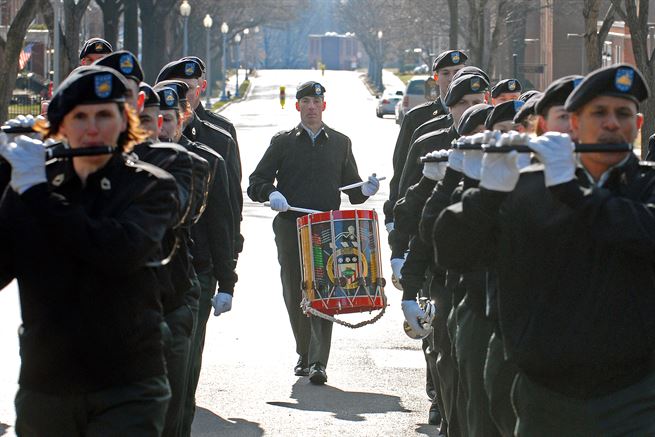
It’s the message that many veterans dread. “Hey, have you heard from ______? I got a message from him, and I’m kind of worried. I tried to get in contact with them, no answer. What do I do?” It could be from one of your closest people, it could be someone you served with but don’t really know, or maybe even a veteran you connected with after the service. It breaks into your day: another veteran is in crisis, suicide is a very real possibility, but you can’t get in contact with them. You swing into action; activate the phone chain, who’s seen them, who’s heard from them, who has an address, what does his Facebook feed say? Then, after you’ve done everything that you know to do, you are no closer to knowing what’s happening than you were at the beginning. Now what?
I’ve written before on what to do when you have a brother or sister in crisis in front of you or on the phone. That’s a stressful time, in which we think that if we say the wrong thing, something bad might happen. And then there’s the challenge of how to react after you’ve learned that you lost another brother or sister to suicide; the helplessness, the grief, the loss, even the anger sometimes. I’ve written about how to cope with that, too. But what about the time like this, when you can’t get into contact with them, you don’t know what’s going on, and you feel helpless, hopeful, and hopeless all at the same time? It can be rough.
This is a hard feeling to describe to someone who has never been in the service. The best analogy that I can come up with is that feeling of a parent who’s kid is out past curfew: the worry, the anger, the frustration. All of the catastrophic fantasies play through your mind: accidents, you child lying bleeding on the side of the road. The challenge here is that the danger is very real; maybe the message might have been explicit, or it might have been vague, but it was detailed enough to cause concern.
On top of that, someone who has served in the military is used to decisive action. Hear of a problem, devise a course of action, implement that course of action, and modify it as needed as you go along. We are not used to inaction, to not knowing or not being able to do. That’s an uncomfortable feeling that we have to live with, too.
Isolation is Dangerous
This frustrating in-between time is a good time to reflect. When a veteran removes themselves from others and starts to isolate, it can be very dangerous. That doesn’t mean that a veteran has to be in every club or connecting every day; but as they start to pull back and fade away, that isolation can start to build on itself. I call them my “lost boys.” The guys and gals that I deployed with that no one has heard from, no one has talked to. A sighting of them is as rare as a sighting of Bigfoot. When we find ourselves starting to pull away and break contact with those we care about, it should be a sign to us that we’re treading in shark-infested waters, too.
Isolation is a Choice
The other challenge is that isolation is a choice. We are humans, with free will and the ability to make our own choices in life. The veteran who throws out a lifeline, through a phone call or or social media, then fades back into the darkness, is making a choice. This can be a harsh thought; I can’t make anyone do anything, including keeping them from taking their own life. I may want to, I may make it my mission to do so, but that doesn’t mean I have the power. The phone works both ways, and if it’s ringing off the hook and the mailbox is full, then there is a limit to what we individually can do. This is the part of acknowledging the limitations of our own ability: we do what we can.
The “Why” question is a good one
Another part of this in-between time is the questioning that we do. Why won’t they reach out? They know they can talk to me, they have before. They know I care, they know I have resources. Why haven’t they answered my phone call? Why, Why, Why? It’s a good question. And it’s also one that you may never get the answer to. It’s not because of you, it’s a choice that they’re making. That doesn’t make it any easier; but understanding that you both have the question and might not get the answer can resolve some of the frustration you’re feeling.
Do All That You Can
Action is important. You know that, as a veteran. So do what you can: if you have an address go there. Keep yourself safe, of course, and don’t put yourself into a situation that can be escalated, but get in contact. If you can’t go there, send someone. Call 911 and ask them to do a welfare check. Your buddy may be pissed, but at least they will be alive; they will thank you for it later. Or, if they don’t, at least they’ll be safe. Hit them up through every method you know; email, text, phone, social media. Send a carrier pigeon, if you have to. Make the effort to contact in as many ways as you know; go to their work. You don’t have to put their business out there to their boss or anything like that, just do what you can to get in contact.
Then Recognize that You’ve Done All You Can
After you have done all that you can, tell yourself that. You have done everything you can think of, and more. The ball is literally in their court. The choice is theirs; if they choose to respond, or they choose not to, it is all on them. This is another hard lesson in the middle of a crisis: we have limits to what we can accomplish. It doesn’t take away the fear, or the feeling of helplessness; but we are the ones who can manage that within ourselves. Limits, boundaries, and choice are all there for a reason.
If you, or someone you know, is in crisis, reach out. There are hundreds of resources, and you only need one to work. You are not alone, veterans. Ever.

The Head Space and Timing Blog is supported by the Colorado Veterans Health and Wellness Agency, a 501(c)3 Nonprofit in Colorado Springs, Colorado. The goal of the CVHWA is to provide military culturally competent mental health counseling to veterans and their spouses, regardless of characterization of discharge, time of service, or era of service. Our vision is to assist veterans to identify and remove barriers to their mental, physical, emotional, and behavioral wellness. For questions or inquiries, contact us!


